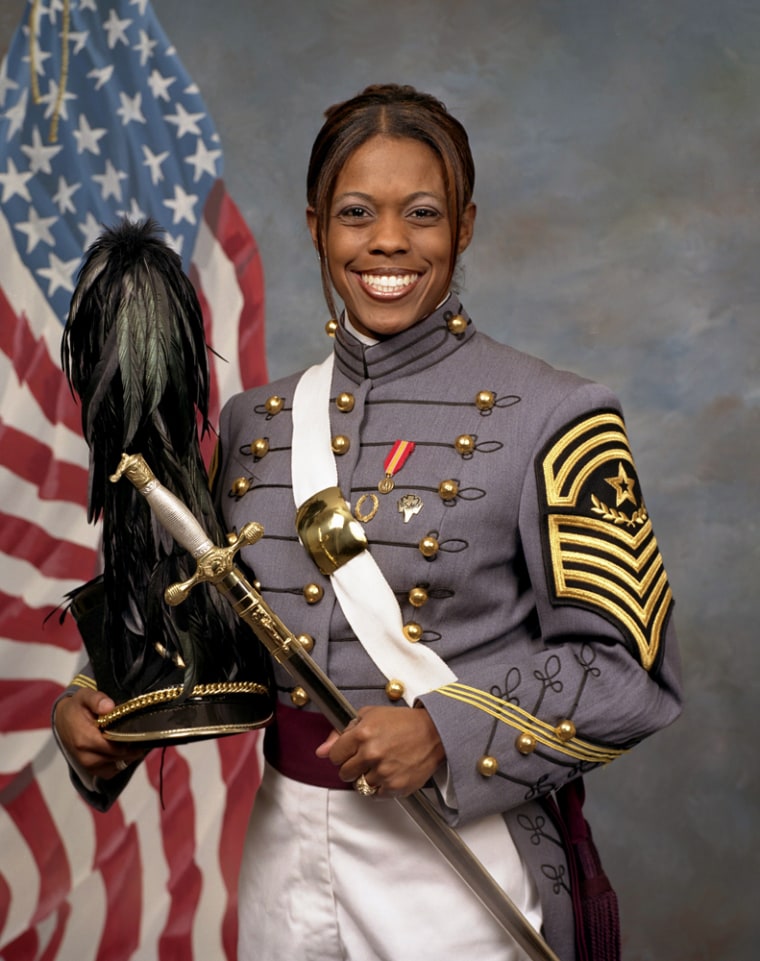The first member of West Point's "Class of 9/11" to die in combat was buried at the military academy Tuesday, two weeks after she was killed by a bomb at the head of a convoy in Iraq.
2nd Lt. Emily Perez, 23, was leading a platoon when a roadside bomb exploded Sept. 12 south of Baghdad. She was the first female West Point graduate to die in Iraq and the highest-ranking black and Hispanic woman cadet in the school's history.
"She was like a little superwoman, so full of energy and life," said Meghan Venable-Thomas, a senior who was on the track team and in the gospel choir with Perez.
The academy's Class of 2005 is called the "Class of 9/11" because the 2001 terrorist attacks occurred just weeks into the students' freshman year.
911 graduates
"I think we all hoped it wouldn't happen," said class President James Freeze of the first death among the graduates, who numbered exactly 911. Half of the class remains on duty in Iraq and Afghanistan.
Perez was a Medical Service Corps officer assigned to the 204th Support Battalion, 2nd Brigade, 4th Infantry Division in Fort Hood, Texas.
Dozens of cadets watched as she was buried in the West Point Cemetery. After accepting the folded American flag from Perez's coffin, her mother leaned over, put her forehead on the casket and whispered.
Perez was fluent in German from growing up overseas. She also played the clarinet and helped start an AIDS ministry at her church. Before leaving for Iraq, she donated bone marrow to a stranger.
"One of the things important to Emily was not the fear of death, but the fear of not living," the Rev. E. Faith Bell said after the service.
